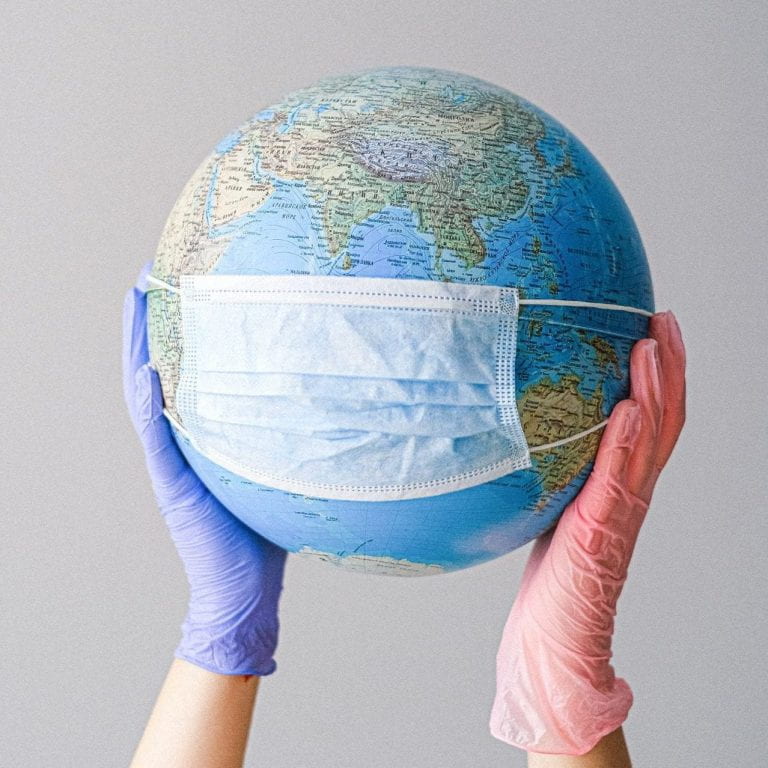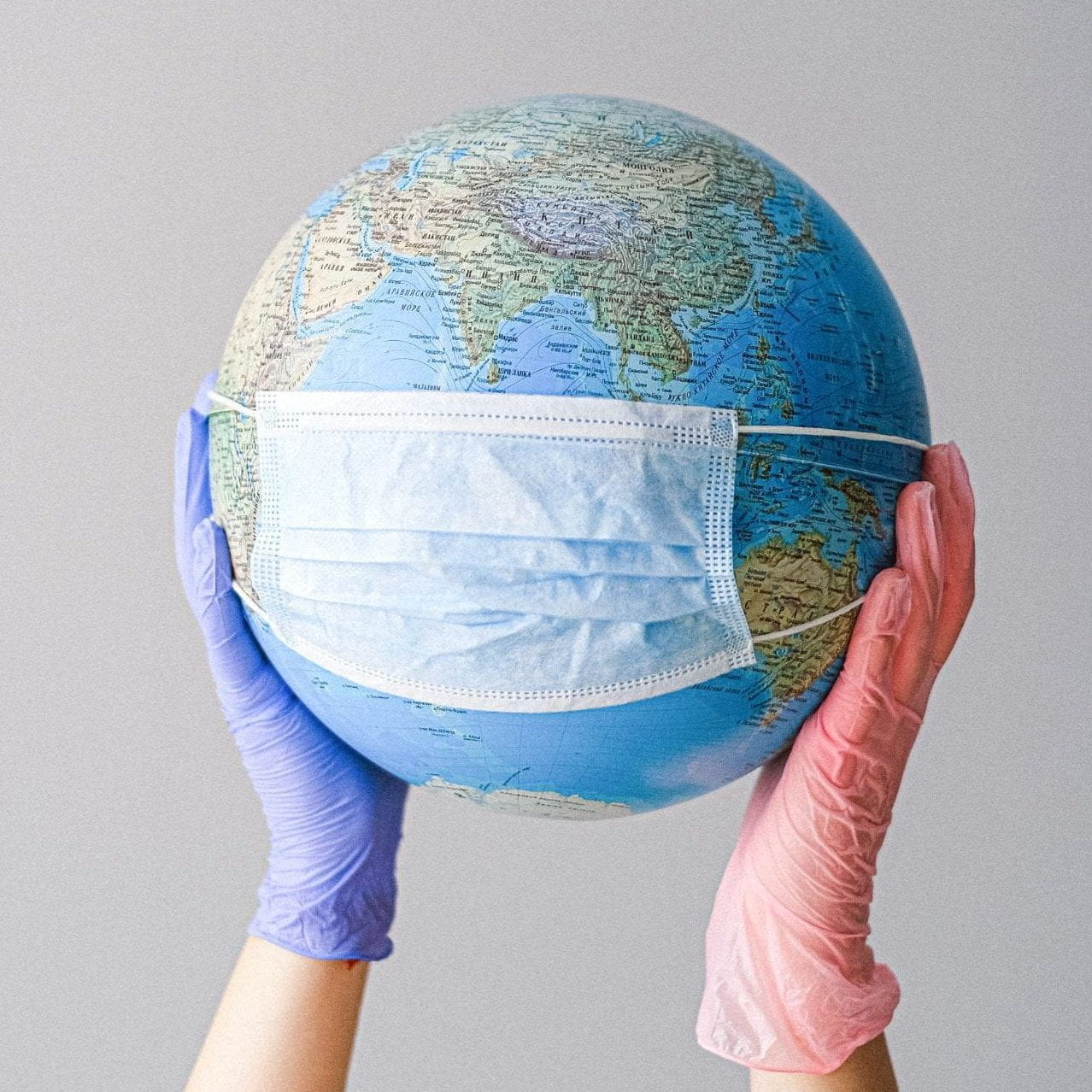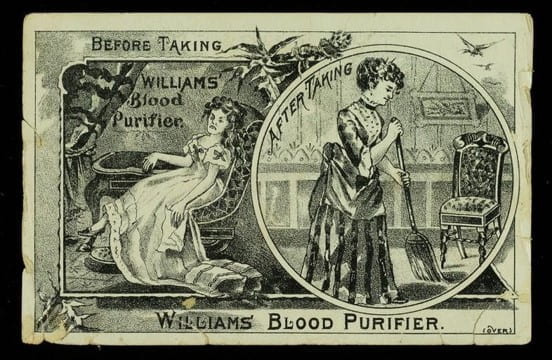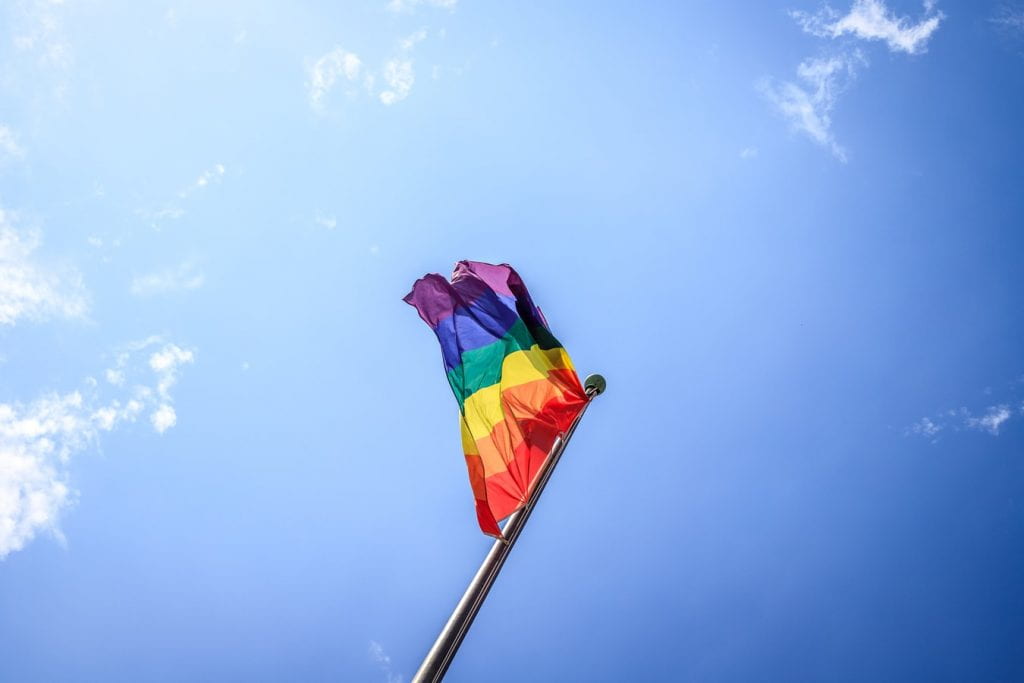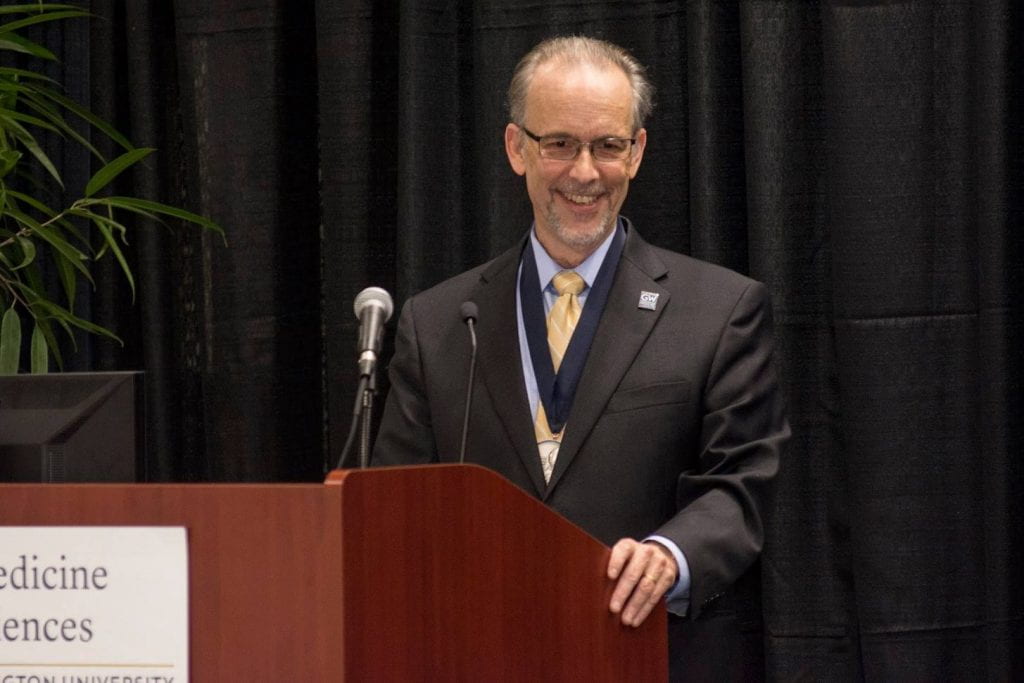
In an effort to remain accountable to communities who have been negatively impacted by past and present medical injustices, the staff at Himmelfarb Library is committed to the work of maintaining an anti-discriminatory practice. We will uplift and highlight diverse stories throughout the year, and not shy away from difficult conversations necessary for health sciences education. To help fulfill this mission, today's blog post features Dr. Lawrence “Bopper” Deyton, MSPH, MD.
Lawrence “Bopper” Deyton has been inspiring School of Medicine and Health Sciences (SMHS) students since March 2013 when he returned to SMHS after 31 years of government service at the Food and Drug Administration (FDA), the Department of Veterans Affairs (VA), the National Institutes of Health (NIH), Health and Human Services Office of the Surgeon General, and stints serving the Assistant Secretary of Health and as a Congressional Aide.
Deyton had an influential experience 46 years ago that “made me realize that massive education of the health and public health community needed to happen” (Roeder, 2019). The experience took place during a visit to the Harvard medical campus’ student health clinic for a sore throat while he was pursuing his Master in Public Health degree at Harvard. The physician who saw him for this complaint offered him a referral to a psychiatrist. After a moment's confusion, Deyton realized that the referral had nothing to do with his sore throat. “It was about me being gay” (Roeder, 2019). Having disclosed his sexual orientation on an intake form alongside answers to routine medical questions, he didn’t think it would be a barrier to obtaining medical care.
Rather than accept this experience as just the way life is, Deyton has been working to be a positive influence for change within health care his entire career. In his current role as Senior Associate Dean for Clinical Public Health and Murdock Head Professor of Medicine and Health Policy at SMHS, Deyton has been instrumental in creating the “Patients, Populations, and Systems” course which integrates concepts of public health, population health, health policy, advocacy and social responsibility with the clinical coursework in an effort to create “clinician citizens.” Deyton says “We want [students] to understand social determinants of health and to take up the mantle of their own social responsibilities when they leave here, and how what they learn here at GW can be used to effect positive social change” (Dvorak, 2018).
“Bopper,” a childhood nickname he has gone by his entire life and his first spoken word, had already been developing a deep sense of social responsibility as an undergraduate student. While pursuing his bachelor’s degree at the University of Kansas in the early 1970’s, Deyton remembers seeing a “Gay is good - Stonewall” poster and making the connection that “there was something out there that would allow me to integrate my sexuality with something that was positive” (Andriote, 1999). By the time he was pursuing his Master of Science in Public Health degree at Harvard, Deyton was doing exactly that. Even before his visit to the doctor about his sore throat, he had already become active in the American Public Health Association’s (APHA) LGBTQ Caucus, which was formed to help “tackle stigma in health care” (Roeder, 2019).
After moving to Washington, D.C. to work as a health policy analyst, Deyton began volunteering with a group of of LGBT health professionals to provide services to gay men from a church basement (Roeder, 2019). In 1978, he co-founded what is now Whitman-Walker Health as “a health clinic for gay men and lesbians before AIDS redefined everything and the clinic became a hub for HIV treatment” (Sullivan, 2011). Deyton eventually left his health policy analyst job to attend medical school at GW in 1981.
While in medical school, Deyton found a copy of Morbidity and Mortality Weekly Report (MMWR) dated June 5, 1981 that described cases of a “rare pneumonia among young, previously healthy gay men in Los Angeles” in his student mailbox (Roeder, 2019). While reading this report on what would eventually be known as HIV/AIDS, Deyton recalls “my heart sank. I knew something awful was happening to my community” (Roeder, 2019). HIV/AIDS became personal for Deyton. He still keeps a blue address book with the names of personal and professional contacts from this time. Roughly a third, about 50 people, in this contact book died (Roeder, 2019). “It’s a totem of remembrance and survival. I’ll never throw it out” Deyton says (Roeder, 2019).
While completing his residency at the University of Southern California Los Angeles County Medical Center, Deyton applied for a competitive position at the NIH. He almost didn’t make it to his interview due to a blizzard that slammed the East Coast the day before his interview. After catching the first available flight and renting a limo to drive him because no taxis were available due to the storm, Deyton arrived to an empty NIH building, “save for a building security guard and one man who didn’t believe in snowstorms shutting down the government” (GW SMHS, 2017). This is how his friendship with Dr. Anthony Fauci began.
As Dr. Fauci recalled during Deyton’s installation as the Murdock Head Professor of Medicine and Health Policy at SMHS, “the guard almost didn’t let him in, but he insisted, pleading with the guard - and this is a true story - he knew how compulsive I am and that I would be there and went up to the seventh floor, knocked on the door...I opened the door, and there began a 30-year relationship” (GW SMHS, 2017). Deyton got the NIH position. At the NIH, he played a crucial role in HIV/AIDS research during the early years of the 1990s epidemic, helping to lead more than 200 NIH-funded clinical trials on HIV therapeutics (Partnership for Public Service, 2021). He oversaw “clinical research on the development and approval of antiretroviral drugs and treatment strategies, including the first trials of combination therapies, the cornerstone of current HIV treatments” (GW SMHS, 2017).
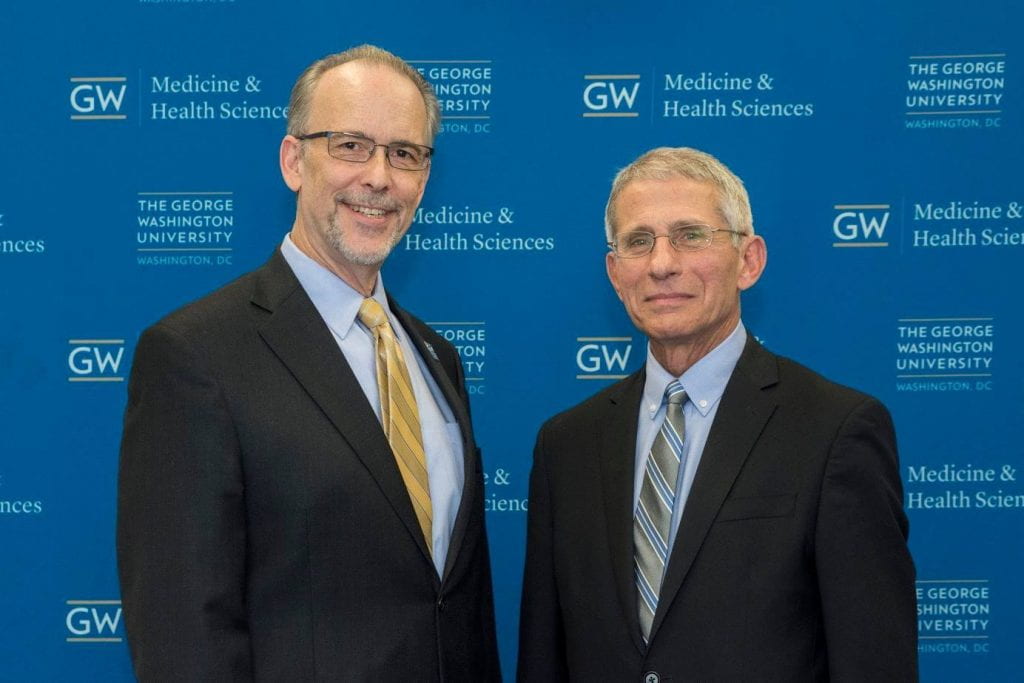
During the course of this research, Deyton helped recruit thousands of HIV/AIDS patients into clinical trials that had “previously been excluded, such as African Americans, drug users, and those with little or no access to health care” (Partnership for Public Service, 2021). At a time when activists such as ACT UP were demanding to be active participants in HIV/AIDS research, Deyton developed the first NIH-funded community-based research program that “included front-line providers in places like LGBT health clinics, homeless shelters, and IV drug use programs'' (Roeder, 2019). “I cannot say how cutting-edge his approach was at the time,” said Margaret Hamburg, FDA Commissioner who nominated Deyton for a Samuel J. Heyman Service of America Medal (Deyton was a finalist for this prestigious award). “It brought research to communities that needed it. He understood the disconnect between patients and research, and he found a new way to do testing and develop products” (Partnership for Public Service, 2021).
By 1996, HIV/AIDS research had started to produce positive results. Deyton recalls being part of a Data and Safety Monitoring Board (DSMB) meeting in which the results of a double-blind NIH-funded study investigating if adding a third drug to suppress HIV would be more effective and extend survival. The unblinded results showed that the regimen was working! “It was one of the most powerful moments in my life. I remember sitting in the DSMB meeting and I started to cry, and I wasn’t the only one. People were living” (Roeder, 2019).
Deyton eventually left the NIH for a position at the US Department of Veterans Affairs as the director of HIV/AIDS treatment programs. At the time, the VA was the largest care provider for HIV-infected patients in the US (Sullivan, 2011). He became the Chief Public Health and Environmental Hazards Officer for the VA, overseeing all public health programs for the national VA health care system. Deyton then transitioned to the FDA, where he served as the first Director of the Center for Tobacco Products. In this role, he oversaw implementation and enforcement of the Family Smoking Prevention and Tobacco Control Act which, for the first time, gave FDA public health regulatory authority over tobacco products in the US.
Now, as the Senior Associate Dean for Clinical Public Health and the Murdock Head Professor of Medicine and Health Policy at GW SMHS, Deyton continues his legacy of creating positive change within healthcare. With SMHS’s strong commitment to social responsibility, it’s a great place for Deyton to do just that! In addition to his innovative Patients, Populations, and Systems course curriculum mentioned earlier, Deyton has been outspoken about influencing change in accrediting bodies within healthcare. Accrediting bodies “want to change...but they don’t know how” Deyton says in the video below.
“...I think the way we can help them do the right thing, is to learn from ACT UP, and learn from the gay rights movement, and learn from the women’s movement, and learn from the civil rights movement. Sometimes leaders just have to stand up, and take a stand, and march, and occupy... If we really believe [in] what we want to do, we have to stop wringing our hands, and take to the streets, and go tell our professional bodies what we need them to do.”
Deyton’s goal for the GW SMHS’ innovative Clinical Public Health curriculum and programs is to prepare GW students to not just be great clinicians at the bedside but also to recognize, speak up and act on those factors outside of the hospital and clinic that will improve their patients’ health. Deyton believes clinicians must use their experience and their voices to improve community health. A guiding theme in Deyton’s life, and one that he has shared with his students, has been to “Just speak. Say who you are and what you want to do, and don’t worry about what anybody else thinks” (Roeder, 2019). It’s no wonder that Deyton has been an inspiration to so many students and colleagues at SMHS!
References:
Andriote, J.-M. (1999). Victory deferred: How AIDS changed gay life in America. The University of Chicago Press.
Dvorak, K. (2018, May 18). Observation: Social Responsibility. Medicine + Health, (Spring 2018). https://gwmedicinehealth.com/news/observation-social-responsibility
George Washington University School of Medicine & Health Sciences. (n.d.). Faculty Directory: Lawrence Deyton. SMHS Faculty Directory. https://apps.smhs.gwu.edu/smhs/facultydirectory/profile.cfm?empName=Lawrence%20Deyton&FacID=2047325353
George Washington University School of Medicine & Health Sciences. (June, 12, 2017). Lawrence “Bopper” Deyton installed as Murdock Head Professor of Medicine and Health Policy. SMHS News. https://smhs.gwu.edu/news/lawrence-%E2%80%9Cbopper%E2%80%9D-deyton-installed-murdock-head-professor-medicine-and-health-policy
George Washington University School of Medicine & Health Sciences. (n.d.). Patients, populations, and systems courses. https://smhs.gwu.edu/academics/md-program/curriculum/clinical-public-health/patients-populations-and-systems-courses
George Washington University School of Medicine & Health Sciences. (2017). [Untitled image of Dr. Lawrence “Bopper” Deyton at Murdock Head Professor of Medicine and Health Policy Installation]. https://smhs.gwu.edu/news/lawrence-%E2%80%9Cbopper%E2%80%9D-deyton-installed-murdock-head-professor-medicine-and-health-policy
George Washington University School of Medicine & Health Sciences. (2017, June 5). Murdock Head Professor of Medicine and Health Policy Installation [Image of Dr. Lawrence “Bopper” Deyton and Dr. Anthony Fauci]. [Photo Album]. GWSMHS Facebook page. https://www.facebook.com/pg/GWSMHS/photos/?tab=album&album_id=1458177520888127
Partnership for Public Service. (2021). Lawrence Deyton. Service to America Medals Honorees. https://servicetoamericamedals.org/honorees/lawrence-deyton/
Roeder, A. (Fall 2019). The Translator. Harvard Public Health: Magazine of the Harvard T.H. Chan School of Public Health. https://www.hsph.harvard.edu/magazine/magazine_article/the-translator/
Sullivan, P. (2011, September 7). Lawrence Deyton, award nominee, heads FDA campaign against smoking. The Washington Post, http://proxygw.wrlc.org/login?url=https://www.washingtonpost.com/local/lawrence-deyton-award-nominee-heads-fda-campaign-against-smoking/2011/08/15/gIQABsMYAK_story.html
UNM Health Sciences. (2015, April 23). Beyond Flexner 2015 Insights: Lawrence “Bopper” Deyton [Video]. Vimeo. https://vimeo.com/125852781

